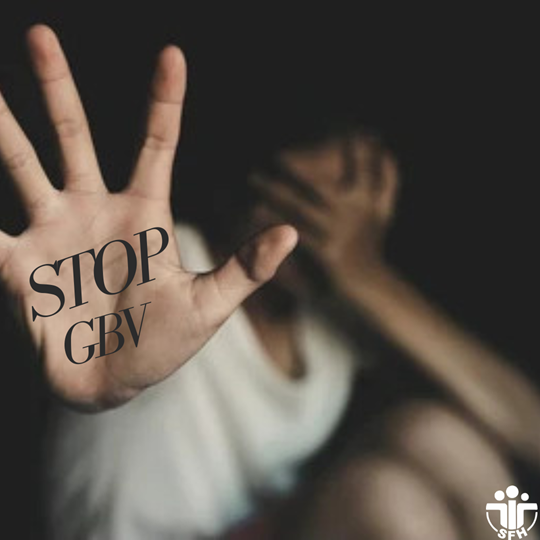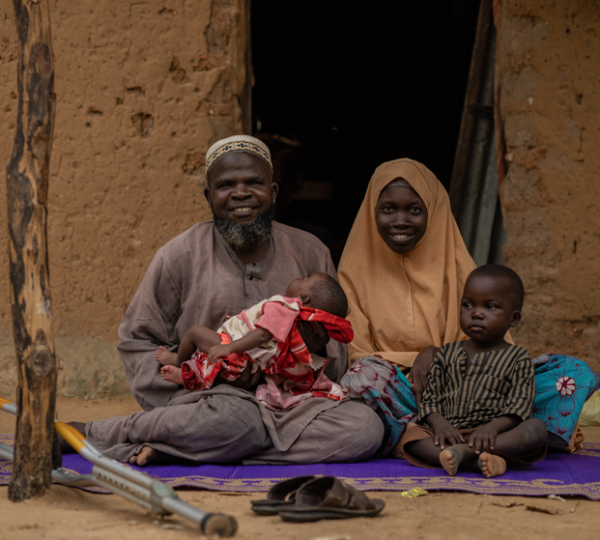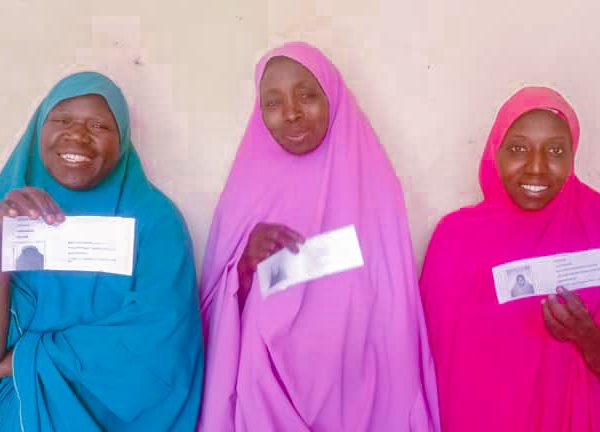Saving Lives in the Hard-to-Reach community through the HERON project: Halima’s Impact in Bayo LGA
By Bashir A. Bashir, Naomi Yusuf and Galadima Abare

Gwarsangola is a Fulani dominated community located in Gamadadi ward of Bayo Local Government Area of Borno State. It is a hard to reach and isolated community because of the terrain. It is surrounded by rocky hills that make access only by trekking, riding animals or special Okada riders, who can navigate the rocky hills with their motor bikes. Difficulty accessing the community increases during the rainy season because the rocky hills become slippery, and two streams stand in the way.
The people are conservatives and not receptive to strangers while their major occupation is rearing and subsistence raining season farming of sorghum, millet, and groundnut.
The people of Gwarsogola believe in the way of the ancestors. Known to practice orthodox medication and rarely go to health facilities to access health care services, They do not attend Antenatal Care (ANC), neither do they deliver in the hospital nor immunize their children. Malnutrition and diarrhea among children are endemic in the region. Malaria is rampant particularly during the rainy season and stomachaches are common, of which they attribute to the water they drink from the streams.
Halima Muhammad Yamta popularly known as Aunty Uwani is a Diploma holder of Public Health Education from Yadi community, it is one of the closest communities to Gwarsangola. In 2021 February, Halima was trained as a Community Health Influencers Promoters and Services (CHIPS) agent by the Society for Family Health (SFH) under the Health Resilience of Northeast Nigeria (HeRON) programme. The training built her capacity to improve demand and coverage of essential health services, especially those related to maternal and child health services at the community level.
Halima was strategically deployed to Gwarsongola. Knowing that the people may not be receptive, on first arrival Halima conducted advocacy to the “Jauro” (village head). It was a success, as he was enlighten on the benefits of accessing health care in the facility and the role he should play as a gatekeeper to improve the health and wellbeing of his subjects. Thereafter, he then allowed for mobilization, sensitization and referral house to house visits to commence.
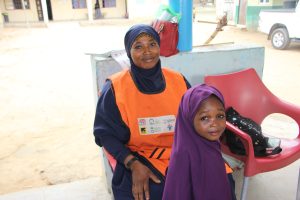 As time went by, they started accessing health care in the facility particularly ANC, delivery and immunization. Halima gained acceptance, recognition and respect in the community because of the solutions she provides to the health problems in the community particularly on maternal, newborn and child health.
As time went by, they started accessing health care in the facility particularly ANC, delivery and immunization. Halima gained acceptance, recognition and respect in the community because of the solutions she provides to the health problems in the community particularly on maternal, newborn and child health.
As Halima continued her house-to-house visits, she reached the house of Mallam Ahmad Samaila. He is a young husband with two wives and five children. Before Halima’s intervention Ahmads wives do not go for ANC, rather they deliver at home. The last delivery in his home came with complication. His wife nearly lost her life-giving birth to a pre-term baby which died shortly. During an interview with Ahmad by the HeRON staff he said “I was seriously disturbed and worried when I learnt that my second wife is pregnant. I was afraid the same thing may happen again because she was weak and pale’. He added, as “ I was in that confused and worrisome moment Halima came in time. I felt like my prayers had been answered”. Halima sensitized Ahmad and his family and escorted his wife to the hospital. Through counselling and appropriate medication, she delivered safely.
It was the first orthodox medicine experience for Ahmad, and he was happy with the result. Ahmad was very impressed with Halima’s work. He went round the community spreading the good news and motivating other husbands to ensure their wives access health care particularly on maternal and child health in the health facility. This made the community women to be access care in Public Health Care (PHC) facility, Gamadadi. Through Halima’s effort about 47 women accessed ANC and 21 delivered in the health facility. She also referred 7 children for Community Management of Acute Malnutrition (CMAM), and 50 children have been Immunized. The community is happy and sees Halima as a role model. On several accounts they tell Halima they want their children to become like her. Two children were named after her as a means of appreciation for a good job well-done.
As a father, Ahmad developed an interest in having a daughter like Halima but in Gwarsogola community this is just a dream. The community has no school. None in the community had national identity, voters’ card or birth certificate. Due to the hard work and achievements of Halima in the community, Ahmad offered his 2 years old daughter, Zainab to Halima. He strongly believes that in the hands of a women that contributes immensely to humanity Zainab will be well raised. He explained during an interview with HeRON staff that “Na bada Zainab ne saboda muna jin dadin aikin da Halima take wa mutanen mu. Lafiyar su ta karu” meaning “I gave her Zainab because we are happy with the good work she is doing in the community”. He also added “in so taje makaranta ta zama mai amfanar da al’umma” meaning “I want her to be educated and serve humanity”.
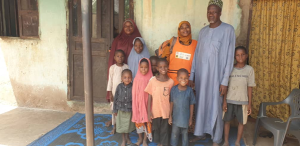
Halima, a mother of 3, is happy with the development and accepted Zainab as a new member of the family. Together with her husband, they enrolled Zainab in school. Zainab’s parents are so happy as the career of their daughter begins. They believe that one day Zainab will be educated and serve humanity.

